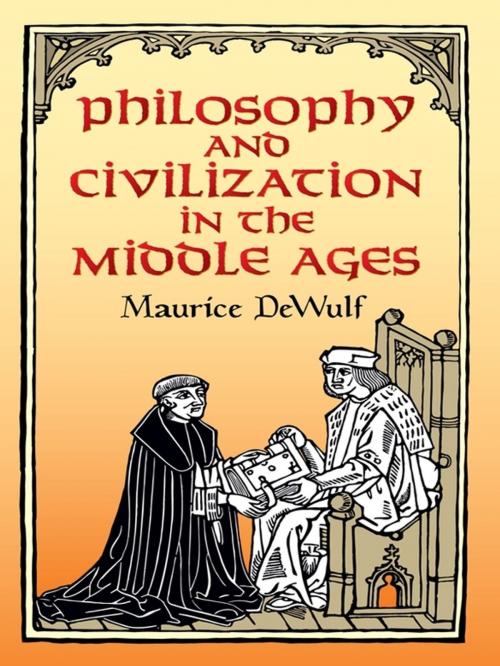| Author: | Maurice DeWulf | ISBN: | 9780486145655 |
| Publisher: | Dover Publications | Publication: | December 27, 2012 |
| Imprint: | Dover Publications | Language: | English |
| Author: | Maurice DeWulf |
| ISBN: | 9780486145655 |
| Publisher: | Dover Publications |
| Publication: | December 27, 2012 |
| Imprint: | Dover Publications |
| Language: | English |
This classic study by a distinguished scholar surveys the major philosophical trends and thinkers of a vital period in Western civilization. Based on Maurice DeWulf's celebrated Princeton University lectures, it offers an accessible view of medieval history, covering scholastic, ecclesiastic, classicist, and secular thought in the twelfth and thirteenth centuries. From Anselm and Abelard to Thomas Aquinas and William of Occam, it chronicles the influence of the era's great philosophers on their contemporaries as well as on subsequent generations.
An overview of feudal Europe examines the rising spirit of the age, in which the concept of the value and dignity of the individual attained a growing acceptance. The thirteenth century's philosophical great awakening is profiled in terms of the development of universities at Paris and Oxford, and the establishment of mendicant orders such as the Dominicans and Franciscans. The study concludes with a discussion of the influence of medieval philosophical systems on later Western societies and the pedagogical value of scholasticism to modern philosophy. An indispensable reference, this volume is essential reading for students of history and philosophy.
This classic study by a distinguished scholar surveys the major philosophical trends and thinkers of a vital period in Western civilization. Based on Maurice DeWulf's celebrated Princeton University lectures, it offers an accessible view of medieval history, covering scholastic, ecclesiastic, classicist, and secular thought in the twelfth and thirteenth centuries. From Anselm and Abelard to Thomas Aquinas and William of Occam, it chronicles the influence of the era's great philosophers on their contemporaries as well as on subsequent generations.
An overview of feudal Europe examines the rising spirit of the age, in which the concept of the value and dignity of the individual attained a growing acceptance. The thirteenth century's philosophical great awakening is profiled in terms of the development of universities at Paris and Oxford, and the establishment of mendicant orders such as the Dominicans and Franciscans. The study concludes with a discussion of the influence of medieval philosophical systems on later Western societies and the pedagogical value of scholasticism to modern philosophy. An indispensable reference, this volume is essential reading for students of history and philosophy.















